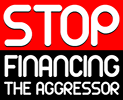How to stop Putin? What guarantees it won’t work…
Three and a half months ago, the Russian war of aggression began. There are no signs that it will end soon.
The fighting is getting bloodier, casualties are mounting, destruction is worsening, Western support is beginning to wane – how much longer will Ukraine hold out?
Yet it has long been recognized that the brutal Russian aggression will not stop at Ukraine’s borders. It will go further.
What must be done to stop Putin? We will not know with absolute certainty until we have succeeded.
But we have seen enough to know what is not working and almost certainly will not work in the future.
In the first weeks of the war, the Russian regime experienced some unwonted surprises:
- It was surprised by the ferocity and determination of the Ukrainian resistance, to whose clout Western arms supplies are contributing critically.
- It also woke up to the shortcomings of its own army, which suffered embarrassing setbacks.
- Unexpected, too, was the unprecedented severity of the economic sanctions that the West, under American leadership, imposed within a few days.
Yet hopes that all this would make Russia back down have not been fulfilled. Rather, things have changed in the meantime.
Western weapons deliveries remain limited and hesitant. They keep Ukrainian forces from collapsing, but they are not sufficient for a decisive breakthrough on the front.
The Russian army’s own shortcomings hold it back, but do not prevent it from advancing slowly but surely in eastern Ukraine. The ruthless use of its vastly superior firepower reduces everything to rubble.
Western economic sanctions hit the Russian economy hard, but do not threaten the economic basis of the Russian regime. Putin seems unimpressed.
The financial might of the Russian regime is based entirely on the export of fossil fuels. So far, Western sanctions have done little to harm this strategic industry. Rather, the sector is benefiting from a sharp rise in oil and gas prices.
After much back and forth, the EU has finally managed to agree to a partial embargo on Russian oil.
However, the EU oil embargo remains patchy. Moreover, it will not really bite before the end of the year. Between now and then, Russia has plenty of time to find alternative export opportunities.
Meanwhile, an EU gas embargo is still not in sight.
Since the start of the war, Europeans have bought fossil fuels from Russia for over 60 billion euros. By the end of the year, that amount will triple.
The only thing likely to impress the Russian leadership would be a comprehensive and immediate import ban on oil and gas – or at least the credible threat of such a ban.
A thorough import ban would force Russia to shut down its production capacities. Yet once oil and gas fields have been shut down, reactivating them again later will be extremely costly and difficult.
Putin recently said that the West would not be able to cut itself off from Russian oil and gas for several years. And no one can know what will happen in the meantime. Therefore, Russia will not concrete over any oil wells.
Unfortunately, there is much to suggest that Putin’s assessment will turn out correct.
It seems that in the West, and especially in Europe, there is a lack of collective will to turn the tide and take the lead in this geopolitical confrontation.
Europe remains incapable of implementing drastic measures. Yet the crisis is not only devastating Ukraine, but also shaking the foundations of our own security. Compelling leadership is lacking.
Meanwhile, things continue to spiral out of control. A world food crisis, massively exacerbated by the Ukrainian war, is in the offing. This brings another commodity into focus alongside oil and gas: wheat.
It is no longer just energy supply that is at stake here. It’s about hunger. However, it is not the people in Europe who will suffer, but those in poorer countries, especially in Africa.
Does it have to come to this? Why is Europe hesitating to act decisively? It is urgent to stop Putin.
As important as weapons supplies to Ukraine are, and as much as they deserve to be expanded, this will not be sufficient given the massive imbalance of military power. Without massive economic pressure, it will not succeed.
With the current priorities in European sanctions policy, however, we will be exposed to the reproach that our own oil and gas supplies are more important to us than supplies of urgently needed wheat from Ukraine and Russia to starving people in Africa.
Is it surprising that many southern and eastern countries do not wish to be forced to sever their trade relations with Russia?
Why should they go along with a sanctions policy that is tainted by European interests while hardly corresponding to their own interests?
People in the South and East of the world have a keen sense of Western hypocrisy.
Consider India, which the Americans tried to persuade to join the coalition against Russia. This was brought up when India’s foreign minister, Subrahmanyam Jaishankar, visited Washington last April.
Jaishankar noted that India’s imports from Russia are modest: “Probably our total purchases for the month would be less than what Europe does in an afternoon.”
And he added: “You might want to think about that.”
Peter Münch

